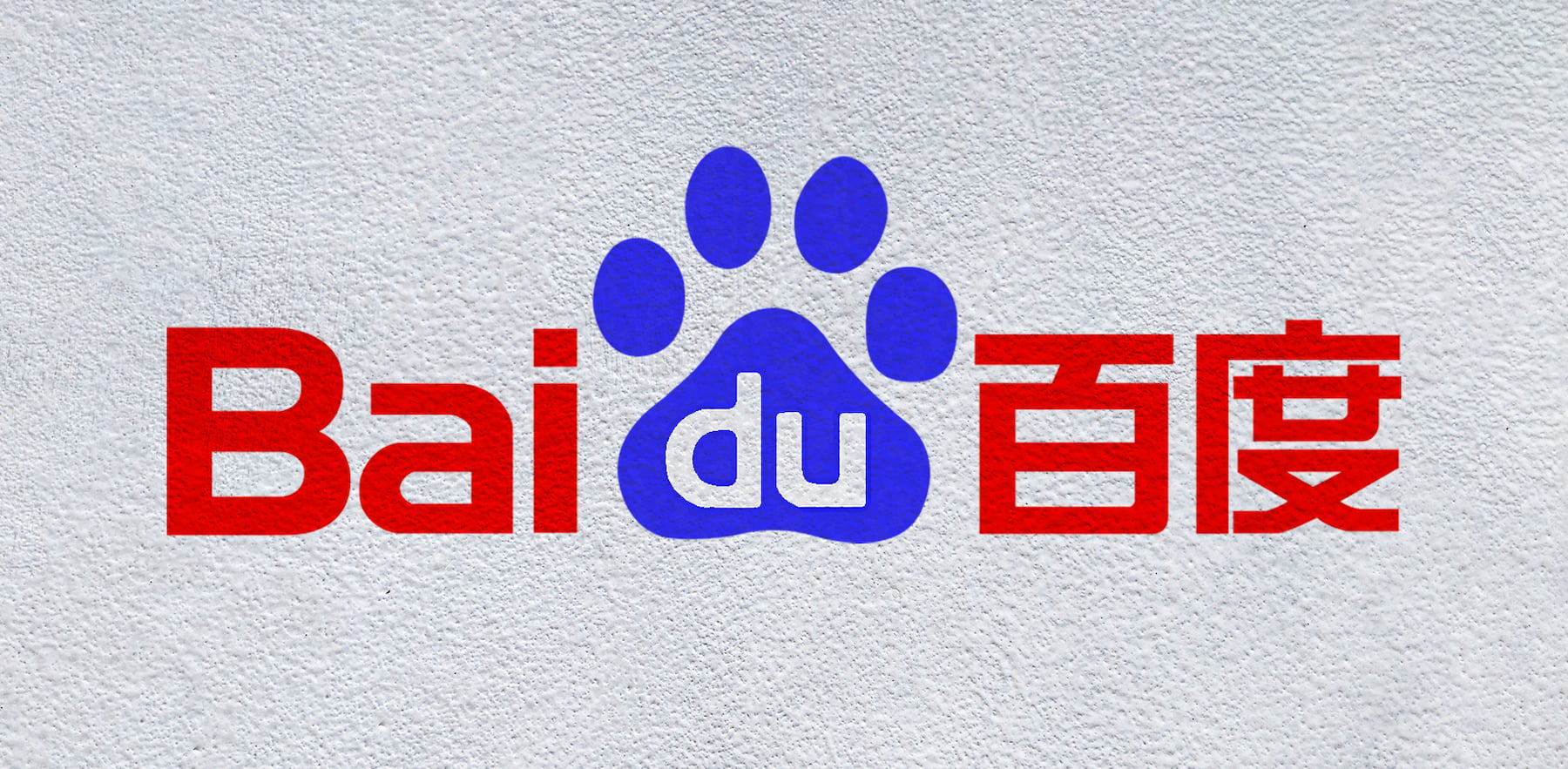Baidu is the top search engine in China, but it cannot be considered the ‘the Google of China.’ Hence, Google SEO strategies will not work the same. SEO, or Search Engine Optimization, refers to “a set of practices designed to improve the appearance and positioning of web pages in organic search results.”
China has become a huge online market, with internet users in China amounting to 1.05 billion as of June 2022, up from 829 million at the end of 2018. The internet is an important medium to target the Chinese market. Therefore, Baidu SEO or other China SEO strategies are vital to reach the growing number of Chinese citizens using the internet. However, penetrating the Chinese online market can be complicated due to several barriers like language, bureaucracy, and censorship.
For foreign businesses looking to communicate their message to Chinese audiences online, it is advisable to leverage the local Chinese search engine Baidu rather than Google. With only 4.85% market share, Google lags far behind Baidu, which currently holds 55.8% of the market in 2022. Baidu has many competitors such as Bing and Sogou, but it has always been the clear leader.
To optimize your website for the Chinese market, it’s essential to focus on Baidu SEO. By adapting your SEO strategy to cater to the Chinese market, you can tap into a large pool of Chinese internet users and expand your reach.
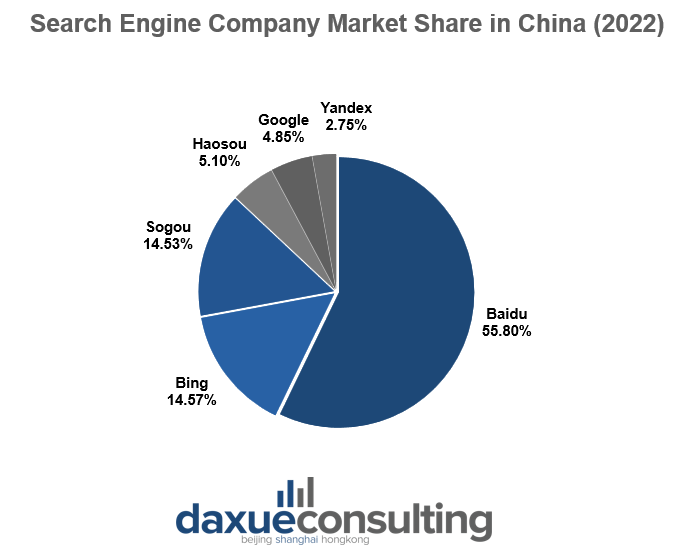
How to do SEO for Baidu
While Baidu shares some similarities with Google in terms of function, its SEO strategy is different from Google SEO strategy. Baidu uses different algorithms compared to Google and is specifically designed for Chinese internet users. Therefore, optimizing for Baidu requires a different approach compared to Google.
Moreover, in a China SEO strategy it’s important to consider cultural differences between the West and China, including language, the censored internet atmosphere, and user patterns.
ICP license: the first step in improving Baidu SEO It may be difficult to figure out how to do SEO in China due to the country’s strict internet regulations. The first step to improving Baidu SEO is to get an ICP (Internet Content Publishing) license from Chinese authorities, which will help your website load faster. Getting an ICP license is the only way for a legitimate Chinese hosting company to host your website on their servers. Unapproved foreign-hosted websites are sometimes penalized, as local authorities prefer to be able to easily reach any website visible in China and so does Baidu. Consequently, without an ICP license, our website may receive lower rankings on the Search Engine Results Page (SERP), and your loading time may be slower.
1. Using Chinese language is important
The second step to optimizing your website in China is understanding Baidu’s language preferences. Baidu does not like Romanized characters, and it also prefers simplified Chinese over traditional Chinese. Thus, it is a good strategy to professionally translate a website. Google Translate is not accurate and grammatically correct enough when it comes to localizing a website for the Chinese market.
In addition to language, it is important to consider content restrictions imposed by Baidu. The search engine enforces strict censorship policies that prohibit anti-government speech, adult material, gambling content, and culturally sensitive news or information. Therefore, it is crucial to ensure that your website does not contain any material that could be subjected to censorship, either directly or indirectly through external links.
This task may prove to be more challenging than expected in your quest to figure out how to do SEO in China. Some harmless words, such as “toad” and “rubber duck,” are banned due to their political implications. Additionally, a seemingly innocent photograph of sunbathers could lead to website censorship for revealing too much skin. Conducting comprehensive research on the local market and enlisting the help of professional linguistic experts in the country can help ensure that your content adheres to local censorship guidelines.
2. Keyword optimization and CTR in Baidu SEO
Similar to other search engines, Baidu’s algorithm prioritizes the usage of relevant keywords. In contrast to Google, Baidu prefers precise and specific keywords. Therefore, to achieve a higher ranking on Baidu, it is essential to employ detailed and specific keywords on your website. Baidu’s Index tool is a valuable resource for keyword optimization, providing accurate data on search trends from internet users.
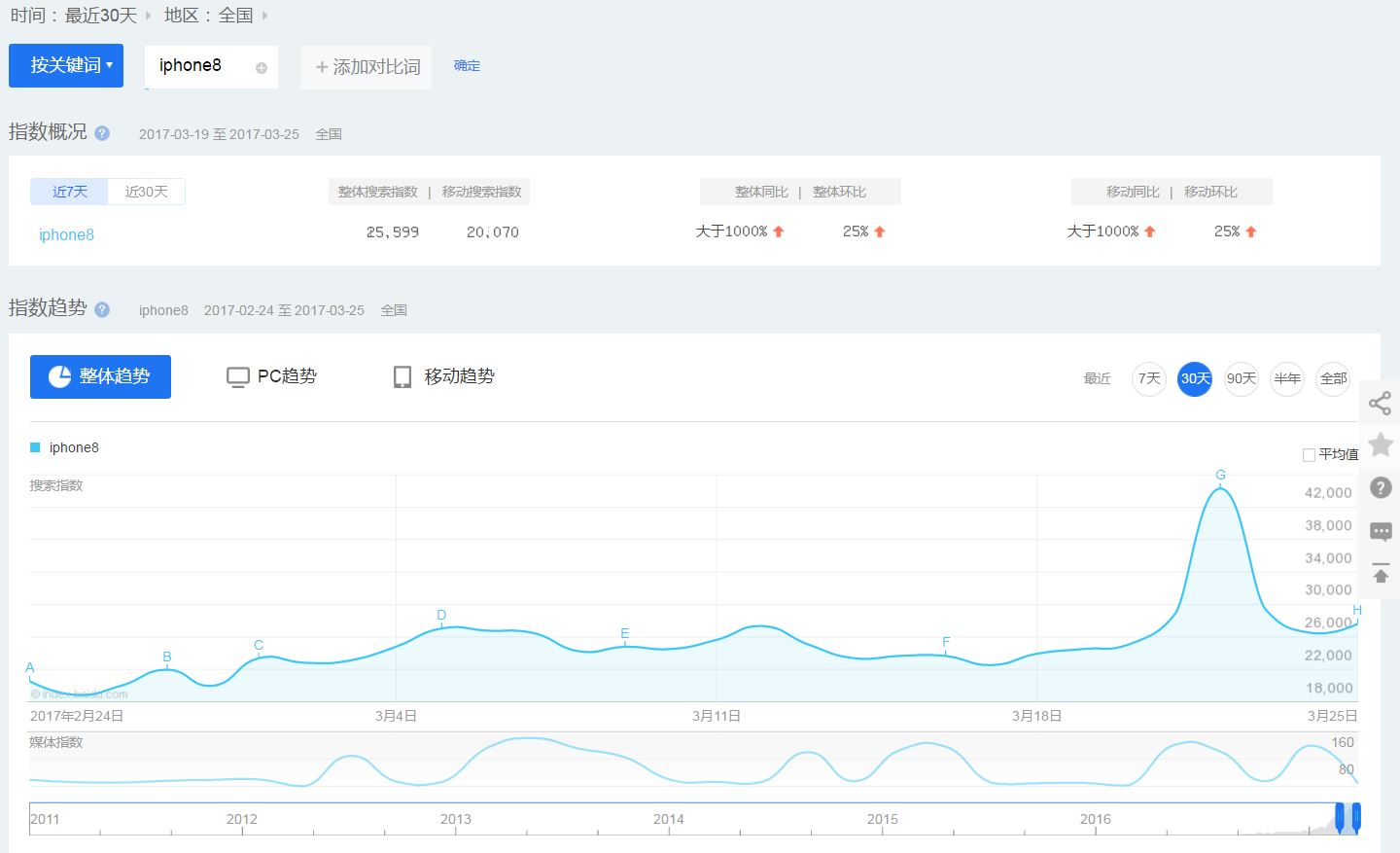
Furthermore, Baidu places significant importance on meta descriptions in conjunction with title tags. It is important to ensure that on-page and off-page keywords are consistent to avoid penalties from Baidu. While keyword tags are not a major ranking factor, using them may prove advantageous.
Apart from keyword optimization, click-through rate (CTR) is a crucial factor in Baidu’s algorithm. By improving the relevance and attractiveness of your content, you can improve your CTR and subsequently improve your website’s ranking on Baidu.
3. Focus on domains and hosting
The SEO community often debates the significance of using local domains and hosting services. However, since Baidu is a Chinese company, it places a higher value on Chinese language elements for improved China SEO. Obtaining a .cn domain can significantly contribute to optimize your website for Baidu, as it signals to the search engine that your website is targeting Chinese users. Additionally, page load time plays a crucial role in website ranking on Baidu, so choosing a local hosting service can improve your website’s loading speed.
Nevertheless, the process of acquiring a .cn domain can pose a real challenge due to the intricate administrative requirements. Multiple documents must be furnished, and seeking the assistance of a partner or a local agency may be necessary to navigate through this process. However, investing in a local domain and hosting service can ultimately improve your website’s visibility and performance on Baidu.
4. Semantic search
Baidu’s equivalent of Google’s featured snippets is a tool called “box computing”, which has been available since 2009. This tool displays relevant information and data directly on the SERP above the main results.
However, the data displayed is not generated automatically by the system. Instead, it has to be submitted specifically to the search engine through Baidu’s Aladdin platform. This tool is also available for mobile devices, providing businesses with an excellent opportunity to reach a broad audience through mobile web pages. This is especially important given China’s fast-growing consumer economy that is dominated by smartphones.
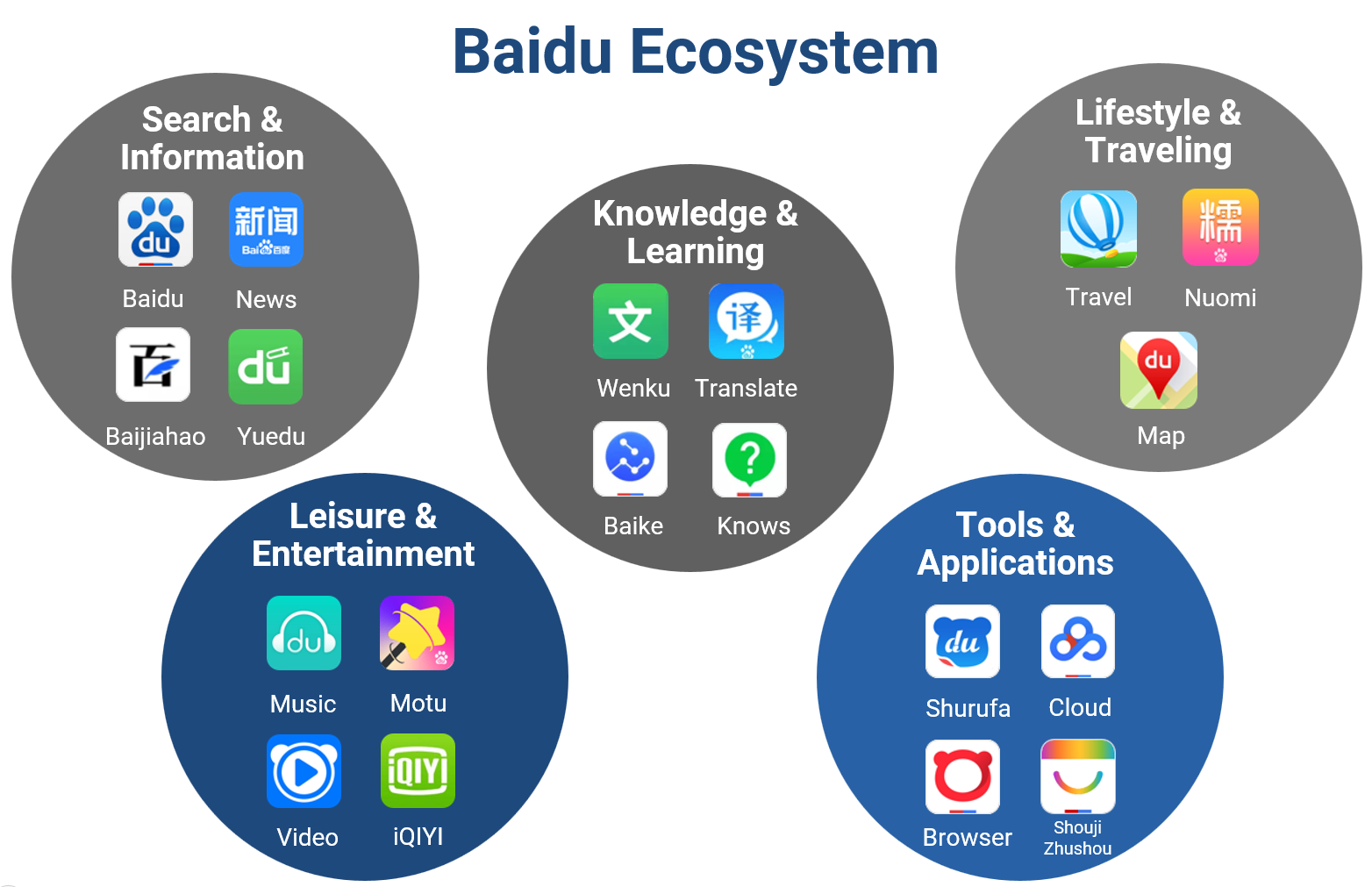
Like Google, Baidu has other major products in addition to its search engine as well. Specifically, the Chinese search engine also has its own encyclopedia (Baike), its Questions and Answers website (Zhidao), and its forum platform (Tieba). Notably, Baidu generally puts its own applications on the top of the SERP. Therefore, in order to improve Baidu SEO, it is important to leverage Baidu’s affiliated products.
How search results differ between Google and Baidu
On Google and Baidu, the search results of the same question “Where to get vaccination in Shanghai” are different from platform to platform.
When searching for vaccination information in Shanghai, Google tends to display comprehensive and organized content related to clinics and hospitals offering vaccination services. In contrast, Baidu often presents search results that simply repeat the exact question verbatim without providing a satisfactory answer. Baidu’s keyword search capability falls short in terms of natural language processing, necessitating the use of precise and specific keywords for effective SEO.
Moreover, Baidu prioritizes content from its other service platforms, such as Baidu Zhidao and Baidu Jingyan, on its SERPs. Even if the content is over five years old, links from these platforms receive higher visibility. This underscores the importance of utilizing Baidu services to enhance China SEO performance.
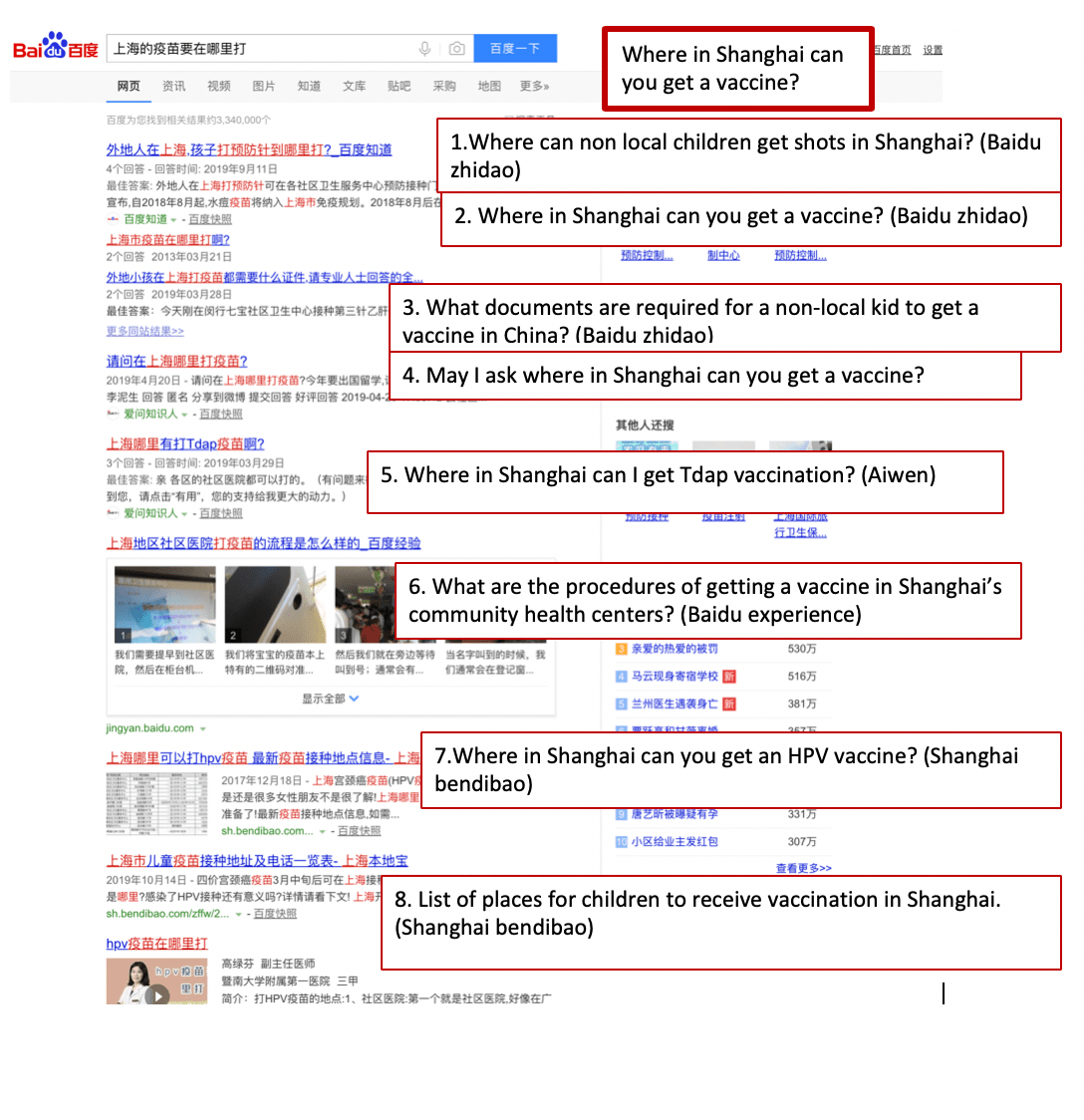

5. Social Media Optimization
In today’s digital marketing landscape, social media optimization is a crucial aspect of any SEO strategy. Although popular social media platforms like Facebook and Twitter are censored in China, Baidu has partnered with Sina Weibo, one of the most successful social networks in the country, enabling the indexing of Weibo posts in Baidu’s results pages.
Therefore, to maximize Baidu SEO performance, it’s important to explore various social media platforms that are available in China.
6. The importance of mobile optimization for Baidu SEO
The prevalence of mobile search has been steadily increasing, and almost all major search engines including Baidu now prioritize mobile-friendliness as a significant ranking factor. Failure to adequately optimize your website for mobile search can result in a significant loss of potential organic traffic.
Other tips on how to improve your ranking on Baidu
Since Baidu does not recognize JavaScript or Flash, using them will result in your website not being indexed.
Additionally, it is good practice to utilize Baidu Webmaster Tools and submit a site map. Baidu Webmaster Tools is a portal created to help webmasters and SEOs monitor and maintain their site’s presence in Baidu’s organic search results. The platform offers a great deal of metrics you can only get from Baidu, tools to test your site’s performance, and a two-way communication channel between you and Baidu.
How to do SEO for Baidu in a nutshell
- Improving Baidu SEO tactics for a foreign company requires a tailored approach that considers China’s distinct digital environment.
- To start, obtaining an ICP license and conducting thorough local-market research is essential to identify industry-specific keywords and phrases that resonate with Chinese consumers.
- Creating original, high-quality content in Mandarin and ensuring it’s mobile-friendly will also boost rankings. Additionally, leveraging Baidu’s other service platforms, such as Zhidao and Jingyan, can enhance search visibility.
- Building a presence on popular Chinese social media platforms like WeChat and Sina Weibo, both of which are integrated with Baidu, can help drive traffic to a company’s website.
- Partnering with a local agency or partner who understands China’s regulatory and administrative requirements can ease the process of obtaining a .cn domain and ensure compliance with local laws.
Author: Hannah Wu


